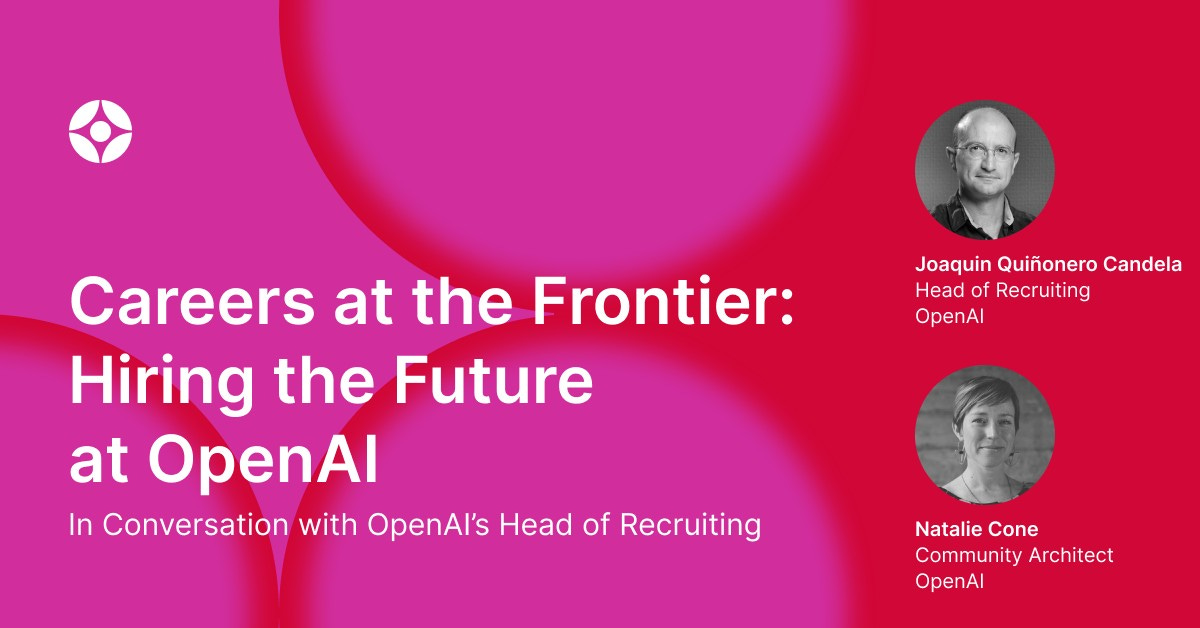Hi
Welcome to The Prompt EU, an OpenAI Global Affairs newsletter focused on AI news, insights and data for a European audience. If you find this newsletter helpful, please sign up for it (and our US-based newsletter, too, if you'd like!).
[Data] Europe’s AI optimism and the pursuit of knowledge
Our previous polling conducted by Penta suggests that nine-in-10 European tech opinion leaders are optimistic about AI’s impact, and nearly nine-in-10 use AI tools weekly. Yet only slightly more than one-third feel “very knowledgeable” about AI.
We can appreciate why. The sector is rapidly evolving: from model development and infrastructure to policy making and the competitive landscape. There is a lot of ground to cover.
In The Prompt EU, we hope to close this enthusiasm-to-expertise gap by sharing our own learnings and examples of best practices into bite-sized, practical insights so we can move from optimism to real-world AI fluency.
A good place to start is the recently published EU Economic Blueprint, which outlines our perspective on what’s needed to unlock AI’s economic potential in Europe. We highlight four key priorities: investing in foundational infrastructure, simplifying regulation, boosting adoption across sectors and regions, and ensuring responsible AI development rooted in European values. You can read the full Blueprint here.
[Prompt] Opportunities for AI adoption across the EU
Our Deep Research tool excels in producing expert-level analysis on any topic, and we often use it as a starting point for our reports. Recently, we asked Deep Research to provide data and analysis on the economic upside of broad AI adoption in the EU. Read the Deep Research report here.
[News] AI brings Versailles’ statues to life
Marking OpenAI’s first cultural partnership with a European heritage institution and the leading cultural startup Ask Mona, our new AI-powered chat invites visitors to spark real-time conversations with 20 iconic garden sculptures simply by scanning a QR code on their smartphone. Each question unlocks a piece of French history.
Built on a rich documentary corpus selected by the Château’s curators, fine-tuned by the Ask Mona team and powered by OpenAI’s technology, this experience shows AI can create a living bridge between past and future—and transform the way we explore our cultural heritage. Try it on your next visit (or here), and let centuries-old marble and golden fountains do the talking.
[AI Economics] AI and the labor market
By Ronnie Chatterji, OpenAI Chief Economist
One of my most important tasks is to understand the impacts of AI on the job market. No doubt, AI will transform our jobs and how our organizations function, but the story of how it will play out is complex. Here are a few observations from our work:
📉 Current metrics aren’t telling us enough: We need to build better and smarter metrics to understand AI. GDP, unemployment, or business revenues don’t yet show a systemic shift due to AI. Instead, we’re developing new indicators—like salary premia for human vs. AI outputs, citations for AI-authored research, and AI-related firm revenue—that may better capture the contours of this transformation.
📈 The impacts of AI will be uneven across industries: Historically, technologies like electricity and the integrated circuit took decades to transform productivity. Although AI has been adopted much more quickly than previous technologies, our best read is that AI diffusion will still follow a somewhat uneven path—shaped by infrastructure, workforce readiness, and sector. For instance, finance and law are highly regulated and slower to adopt some AI uses due to compliance concerns. Meanwhile, jobs that are more digitized and routine are seeing faster AI exposure.
🔍 Job loss headlines are not the full story: While some firms are cutting jobs and attributing it to AI, those stories miss the baseline churn: around 4 million people leave or lose their jobs every month in the US—and 4 million are hired. AI-related layoffs are still a small fraction of total labor flows. It will take more time and more granular data for us to assess to what degree AI is the source of major job changes.
🔧 Jobs will be created, lost, and changed: As with past technological revolutions, we will see new jobs emerge and others go away or shift dramatically. Already, we’re seeing large firms retrain thousands of workers for new roles enhanced by AI—not eliminated by it. New firms will also be created to do work we couldn’t have imagined prior to AI and making some hires along the way.
💡 Our strategy: Based on these principles, our team is taking a systematic approach: tracking economic indicators, building new metrics, in convening AI and economic policymakers for tabletop exercises around the world, and launching research projects to measure the impact of AI on the economy. This is how we’re developing insights, analyses, and recommendations for our organization, policymakers and stakeholders.
[More info] Quick links
Privacy × AIngel partnership—Learn how we’re teaming up with privacy experts to enhance privacy rights with AI tools in Europe and beyond. Read more.
Trust & Transparency—Discover our principles for responsible AI deployment. Explore here.
[About] OpenAI Forum
Explore past and upcoming programming by and for our community of more than 30,000 AI experts and enthusiasts from across tech, science, medicine, education and government, among other fields.
8:00 PM – 9:50 PM EDT on Jul 24
[Disclosure]
Graphics created by Base Three using ChatGPT.













